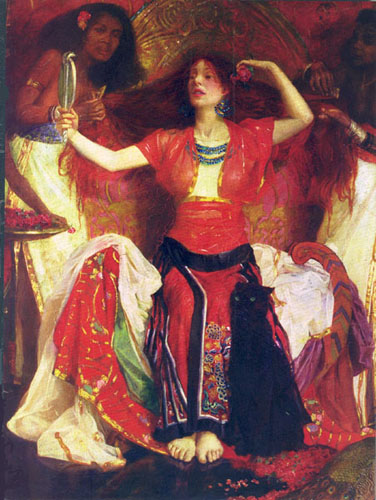
“Nevertheless, I have this against you: You tolerate that woman Jezebel, who calls herself a prophet.” (Apocalypse 2:20)
There is a woman in Thyatira who is a rival of St. John the Apostle. She teaches a group known as the Nicolaitans. She–and her followers–reject the authority of the St. John and disobey his teaching. He compares her to the Old Testament queen, Jezebel.
Jezebel appears in the Old Testament (2 Kings). She is the archenemy of the prophet Elijah. She teaches the people to commit adultery and practice sorcery. Tyconius–the first Biblical scholar to write a commentary on the Apocalypse–says that the figure of Jezebel in the Apocalypse “stands for the whole fallen order.” She is everything that stands in opposition to God. Always and everywhere, whatever opposes God is “Jezebel.” Tyconius also says that her followers, her “children,” can be seen as Goliath, who refused to admit the truth: that Israel’s God is the true God and that David was the one chosen by God to protect the people. Jezebel’s followers refuse to admit the truth: that the Apostle John is the authentic teacher chosen by God and serves as the protector of the Christian communities, as David was in the Old Testament.)
The woman in Thyatira that St. John was concerned was an “antinomian.” (That’s a fancy word that means “against the rules.” Antinomian groups always object to having to follow any rules.) She taught her followers that it didn’t matter what they ate or who they slept with or if they denied Christ when arrested by the Romans and were facing execution. (There was an antinomian faction among the Christians in Corinth, as well–people thought it didn’t matter what they ate or who they slept with.)
“Jezebel” in Thyatira told her followers to just blend in with mainstream society. St. John did not want the Christians to assimilate at all with the society in which they lived. “How much assimilation is acceptable?” was a difficult question that different Christian teachers answered in different ways in different places at different times.
